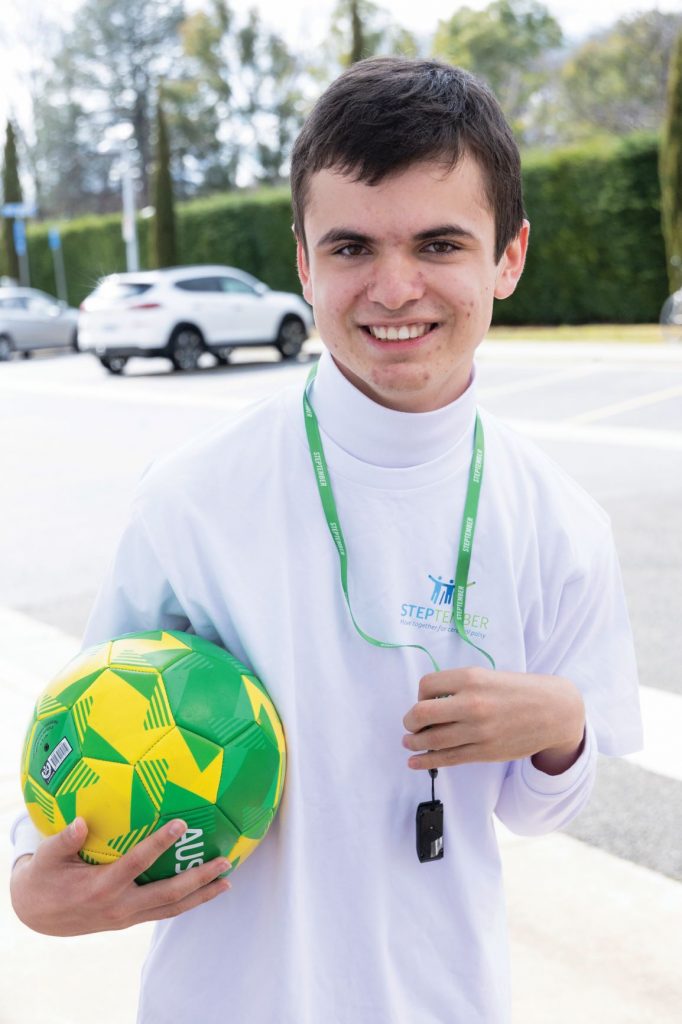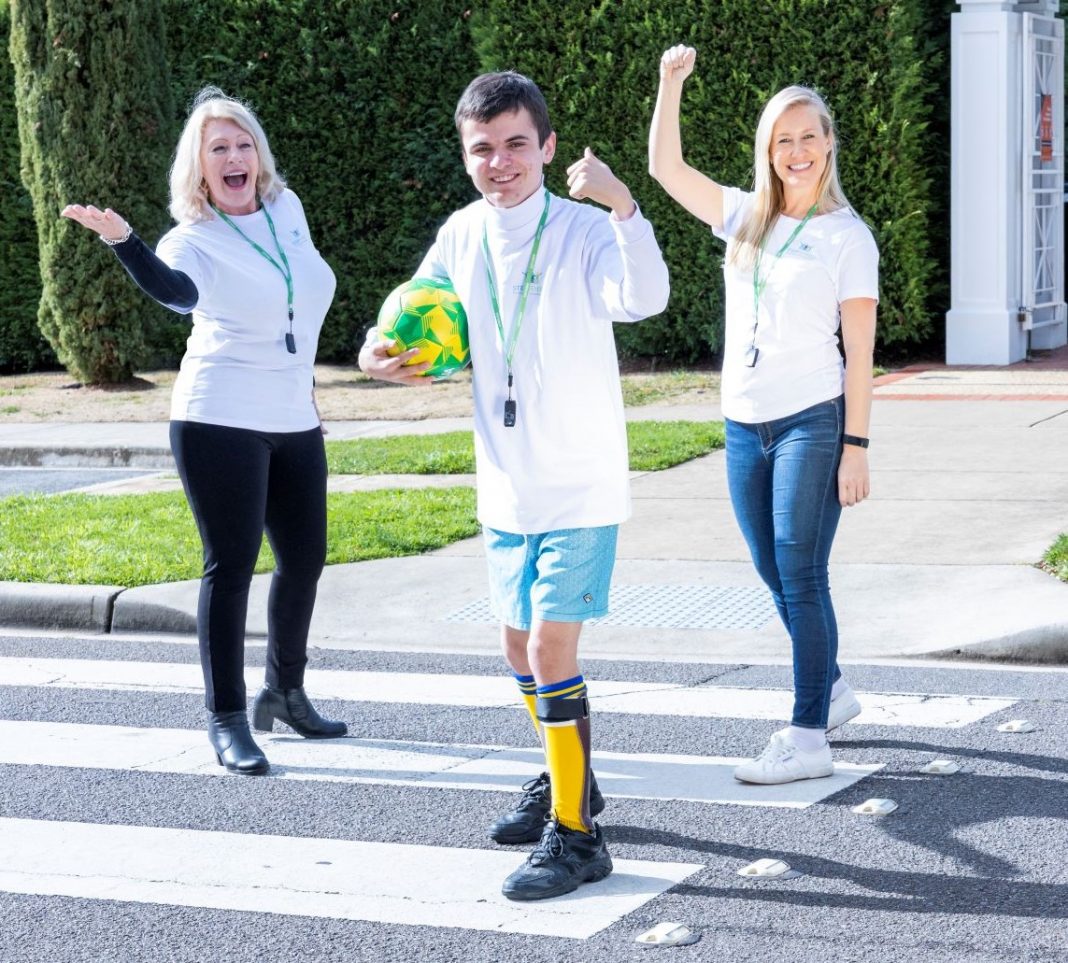Born premature at 24 weeks, Sebastian Claessens had a tough entry into this world.
He spent his first six months in intensive care, had no movement in the left side of his body, and endured heart surgery, blood clots and severe brain damage.
Despite being given only a 5% chance of survival, Sebastian is now a soccer-playing, music-loving, hip-hop-dancing 16-year-old, living with cerebral palsy.
Sebastian’s dad Michael said the doctors had no idea if Sebastian would ever walk, or what sort of life he would be able to have.
“But now, he’s a happy and engaged kid,” Michael said. “He’s gone from zero to hero.”
In Australia, one in 700 babies is diagnosed with cerebral palsy – a neurological disorder caused by damage to the brain during pregnancy or soon after birth and which affects a person’s body movement and muscle coordination. However, that is a significant improvement on the incidence rate of 10 years ago which was one in every 400 babies.
Funding for research and service provision comes, in part, from the Cerebral Palsy Alliance’s annual fundraiser, STEPtember.
Now in its tenth year, STEPtember challenges participants to take 10,000 steps a day for 28 days whilst soliciting donations for the cause.

The Cerebral Palsy Alliance (CPA) has worked with the Claessens for the last 13 years, providing ongoing physical support for Sebastian and information and emotional support for the entire family.
Sebastian’s mum Stephanie said the Alliance had helped make it easier for people with cerebral palsy to live their everyday lives and to always be as functional in their bodies as possible.
“As Sebastian grew, he needed exercise classes and the CPA have excellent, amazing services,” she said.
“The hydrotherapy is extremely important because it gives Sebastian a feeling of weightlessness, which he just loves, and he is able to stretch and strengthen his body.
“People with cerebral palsy are always fighting the tension in their muscles and working against tightness in their body.
“It’s extremely tiring, just to sit up straight or in a chair means their body is working overtime.
“We see him forget that his arm doesn’t work properly, or his leg doesn’t work properly, and he’ll tire and slump.
“But with assistance and exercises once a week, he can train and get stronger.”
Stephanie said while the Alliance was “a fantastic source” of information, it was also a way to connect with other families.
“We go to events and socialise, and we share information and our experiences,” she said.
STEPtember is the CPA’s leading fundraiser, with more than 80,000 people around the country taking part.
CPA corporate manager Kristie Steggles said this year’s STEPtember was even more important because it was their only fundraiser unaffected by COVID restrictions.
“Anyone can do it, it’s not just walking, you can do other things, you can even do housework – it’s inclusive.
“You just need to register, log your activity on the app and get people to donate.”
STEPtember raised more than $7 million last year, and along with mobility equipment and support for individuals, the money also feeds into research, identifying at-risk babies, developing early intervention strategies, and plugging gaps in the National Disability Insurance Scheme.
Kristie said it can take around 18 months for babies to be diagnosed, which meant early therapy in the pre-diagnosis phase was crucial.
“The research foundation is world-leading,” Kristie said. “We’re focused on the treatment, prevention, causes and cures.”
In the Canberra region, Capital Chemist Group has supported the CPA for 13 years and donated around $150,000 in equipment and $6 million cash.
Capital Chemist community program manager Melita Flynn said the group’s connection with CPA had been “quite a profound” experience.
“We’re extremely proud, they’re a wonderful organisation,” Melita said.
“We know where the money goes, how it’s assisting, and we’re pleased to give back to our community.
“I don’t think people really know how many people are affected by cerebral palsy.”
Capital Chemist Group will have around 50 staff participating in STEPtember again this year.
“It’s a great way to get your steps in and we like to have some fun and some competitions,” Melita said.
“We’re proud of our community program.”
Sebastian’s older brother Max will be doing the 10,000 daily steps this year on behalf of the Claessens family, Dad will be using his business to promote it and Mum wants to raise awareness.
Stephanie said cerebral palsy was a “lifetime situation” which required continual intervention to keep people mentally and physical healthy.
“You never stop using the therapies,” she said.
“There is never a moment you think, ‘that’s it, that’s as good as we can go’.
“It took Sebastian six-and-a-half years to be able to walk properly, but we kept working and today we’re in a really good situation.”
Michael said people with cerebral palsy fought a battle with their body for all their life and the support from not-for-profits like the Cerebral Palsy Alliance was critical for the person with cerebral palsy and their support teams.
“Without the families and support teams, they can’t get access to the things they need,” he said.
“They direct us towards the information we need, they support us and encourage us.”



